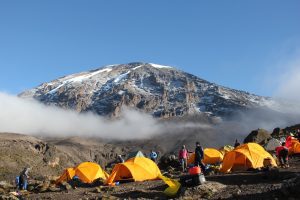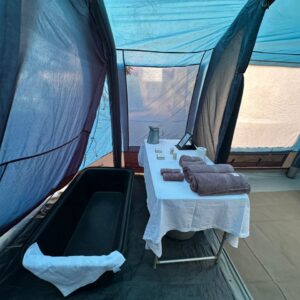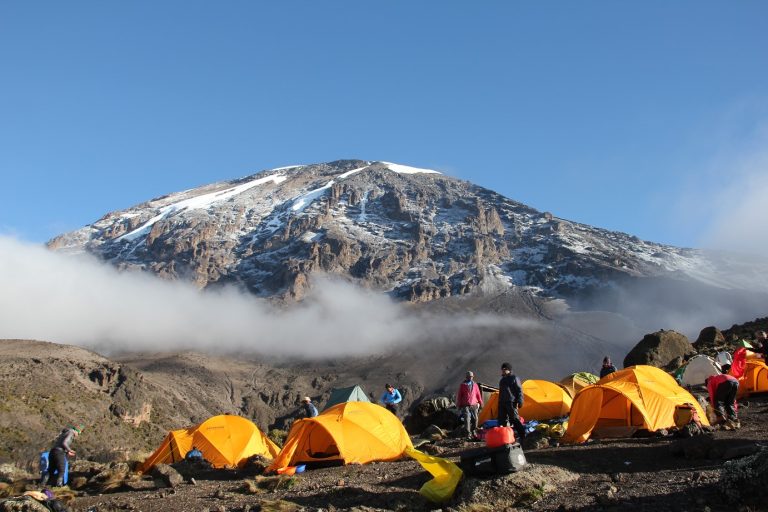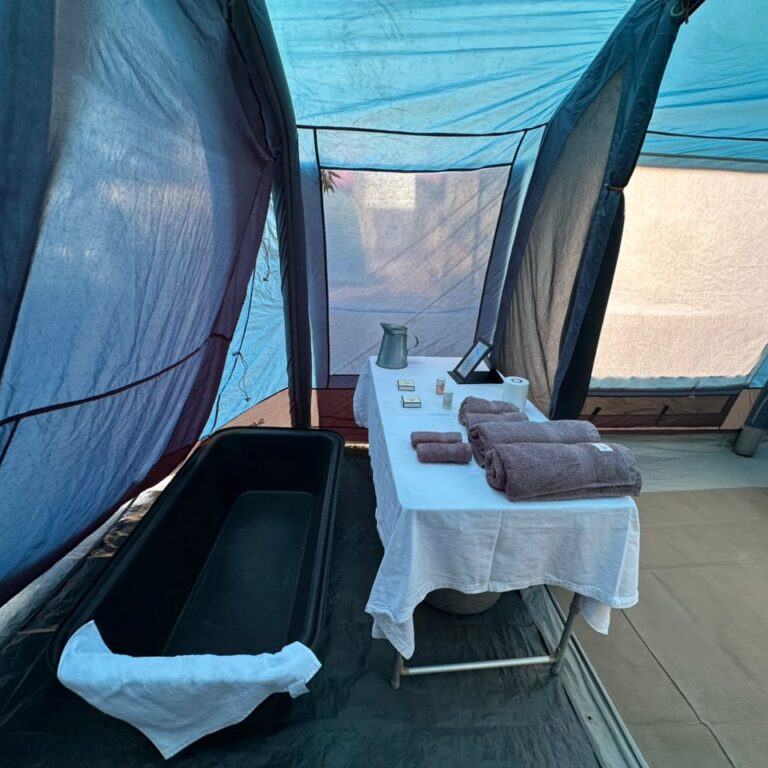To have a successful and safe safari in Tanzania, you should avoid making noise, feeding or touching wildlife, and leaving your vehicle without permission. Additionally, avoid wearing bright or dark colors, and pack appropriate clothing for varying temperatures and potential dust. Finally, avoid being disrespectful to local culture by not asking permission before taking photos of people and following your guide’s instructions at all times.
Tanzania, a country located in East Africa, is renowned for its breathtaking landscapes, diverse wildlife, and rich cultural heritage. It’s a dream destination for many adventure seekers and wildlife enthusiasts who wish to embark on a safari adventure. While Tanzania offers an array of remarkable experiences, there are certain things you should avoid to ensure your safari is safe, enjoyable, and respectful of the environment and local communities. In this article, we’ll explore some essential tips on things to avoid while going on a safari in Tanzania.
1. Don’t Overpacking
One common mistake that safari-goers often make is overpacking. It’s important to remember that you’ll likely be traveling in small aircraft between different safari destinations, and there are strict weight restrictions for luggage known what not to pack on a Tanzania Safari. Overpacking not only complicates your logistics but also inconveniences your fellow travelers. Be mindful of the weight limits and pack only the essentials such as lightweight clothing, comfortable shoes, and necessary toiletries.
2. Don’t Ignore the Weather
Tanzania experiences a variety of weather patterns throughout the year. Ignoring the weather can make your safari less enjoyable, one of the 10 Things to Avoid on Safari. Research the best time to visit based on your preferences. For instance, if you want to witness the Great Migration in the Serengeti, plan your trip between July and October. Avoid the rainy season, which typically occurs from March to May, as it can make some areas inaccessible and create unfavorable wildlife viewing conditions.
3. Not Respecting Wildlife
Respecting wildlife is paramount while on safari, one of 10 safari do’s and don’ts. Avoid making loud noises, sudden movements, or getting too close to the animals. Keep in mind that you’re a guest in their natural habitat, and your presence should not disrupt their behavior. Always listen to your guide’s instructions regarding wildlife interaction and maintain a safe distance at all times.
4. Don’t feed Animals
Feeding wild animals can have severe consequences mistakes to avoid on a safari, According To Experts. It can disrupt their natural diet, create dependency on humans, and lead to aggressive behavior. Furthermore, some animals may carry diseases that can be transmitted to humans. Refrain from feeding any wildlife you encounter during your safari, even if it seems harmless or cute. In the same vein, never shout, never get up, and never move quickly. Safaris can occasionally be tense, but no matter how bad things get, always maintain your composure. Trust your guide to keep you safe if an agitated animal charges the vehicle; that’s what they’re trained to do.
5. Don’t Litter
Preserving Tanzania’s stunning landscapes is a collective responsibility. Littering not only damages the environment but also poses a danger to wildlife. 10 Tanzania Safari Do’s and Don’ts, the best thing about going on a safari is that you get to see abundant wildlife in its natural habitat and expect to not disrupt it. Mistakes To Avoid While On Safari: Don’t carry Food on Safari, Don’t wear perfume. No smoking. Don’t bring any food. Do not feed the animals. Don’t leave trash behind. Make an effort to keep your trash in designated bins or carry it with you until you find a suitable disposal point. Show respect for the beautiful wilderness you’re exploring.
6. Don’t Disregard Local Customs and Culture
Tanzania is a culturally diverse country with a rich tapestry of traditions and customs. While on safari, you may have opportunities to interact with local communities, this is what not to do on a safari in Africa. It’s essential to respect their traditions and seek permission before taking photographs. Learning a few basic Swahili phrases can go a long way in building positive interactions with the locals.
7. Not Being Prepared for Physical Challenges
Safaris can be physically demanding, especially if you choose to explore remote or rugged areas. It’s crucial to be physically prepared for the challenges that may arise. Stay hydrated, wear appropriate clothing, and be ready for long drives and walks. Consult your physician if you have any health concerns before embarking on a safari.
8. Don’t Neglect Travel Insurance
Travel insurance is an often-overlooked aspect of safari planning you have to follow Tanzania Travel Advice & Safety. It’s wise to purchase comprehensive travel insurance that covers medical emergencies, trip cancellations, and lost luggage. Tanzania’s remote locations may not have immediate access to medical facilities, so having adequate coverage is essential for your safety and peace of mind.
9. Don’t Ignore Safety Guidelines
Listen to your safari guide’s safety instructions and adhere to the rules provided by the tour operator. These guidelines are in place to protect both you and the wildlife for your best complete guide to Safari in Tanzania. Ignoring them can lead to potentially dangerous situations.
10. Don’t/ Not Booking in Advance
Tanzania’s popular safari destinations can get booked up quickly, especially during peak seasons. Waiting until the last minute to book can result in limited options and higher prices. To secure your preferred accommodations and safari experiences, it’s advisable to plan and book well in advance.
Frequently Asked Questions (FAQs) about things to avoid while on Safari in Tanzania
Is Tanzania safe for tourists?
Tanzania is generally considered safe for tourists. However, like any destination, it’s essential to exercise common sense and take precautions. Follow the advice of your safari guide and stay updated on any travel advisories.
Do I need vaccinations before traveling to Tanzania?
Yes, vaccinations are recommended before traveling to Tanzania. The most commonly recommended vaccines include those for yellow fever, typhoid, hepatitis A and B, and tetanus. It’s essential to consult with a healthcare professional or travel clinic for personalized advice based on your travel plans and medical history.
What is the best time to go on a safari in Tanzania?
The best time for a safari in Tanzania depends on your preferences. The dry season, from June to October, is ideal for wildlife viewing, especially the Great Migration in the Serengeti. However, this is also the peak tourist season. The wet season, from November to May, offers lower prices and fewer tourists, but some areas may be inaccessible due to heavy rains.
What type of clothing should I pack for a safari?
Pack lightweight, breathable clothing in neutral colors such as khaki, green, or beige. Long-sleeved shirts and pants are advisable to protect against insects and the sun. Comfortable closed-toe shoes or hiking boots are essential for walks and hikes. Don’t forget to bring a wide-brimmed hat, sunglasses, and sunscreen for sun protection.
Can I drink tap water in Tanzania?
It’s recommended to avoid drinking tap water in Tanzania. Stick to bottled water, which is readily available in most areas. Also, use bottled water for brushing your teeth and avoid consuming ice in drinks from unknown sources.
What is the tipping etiquette in Tanzania?
Tipping is customary in Tanzania, and it’s a way to show appreciation for good service. It’s common to tip your safari guide, lodge staff, and drivers. The amount can vary, but a general guideline is to tip around 10% of the total cost of your safari or services.
Are there any restrictions on photography during a safari?
While photography is encouraged during a safari, it’s important to respect the guidelines provided by your safari guide. Avoid using flash photography, as it can startle or disturb wildlife. Additionally, seek permission before taking photos of local people or their property.
What should I do in case of a wildlife encounter?
If you encounter wildlife while on safari, remain calm and follow your guide’s instructions. Keep a safe distance, avoid sudden movements, and do not approach the animals. Never attempt to feed or touch wild animals, as this can be dangerous.
In conclusion, a safari in Tanzania can be a life-changing experience filled with incredible wildlife sightings and stunning landscapes. By avoiding these common mistakes and following ethical and safety guidelines, you can make the most of your safari adventure while preserving the environment and respecting local culture. Prepare thoroughly, stay informed, and embrace the natural wonders that Tanzania has to offer.








